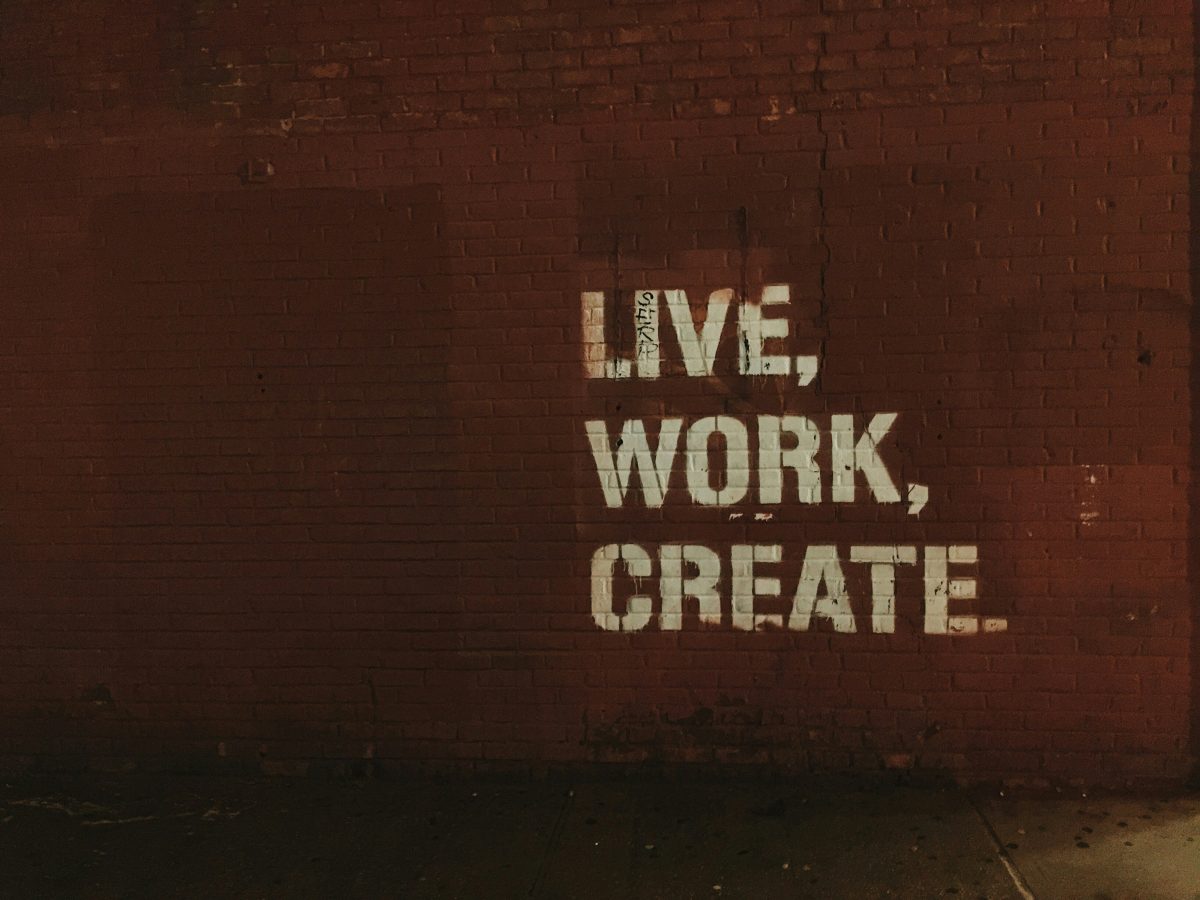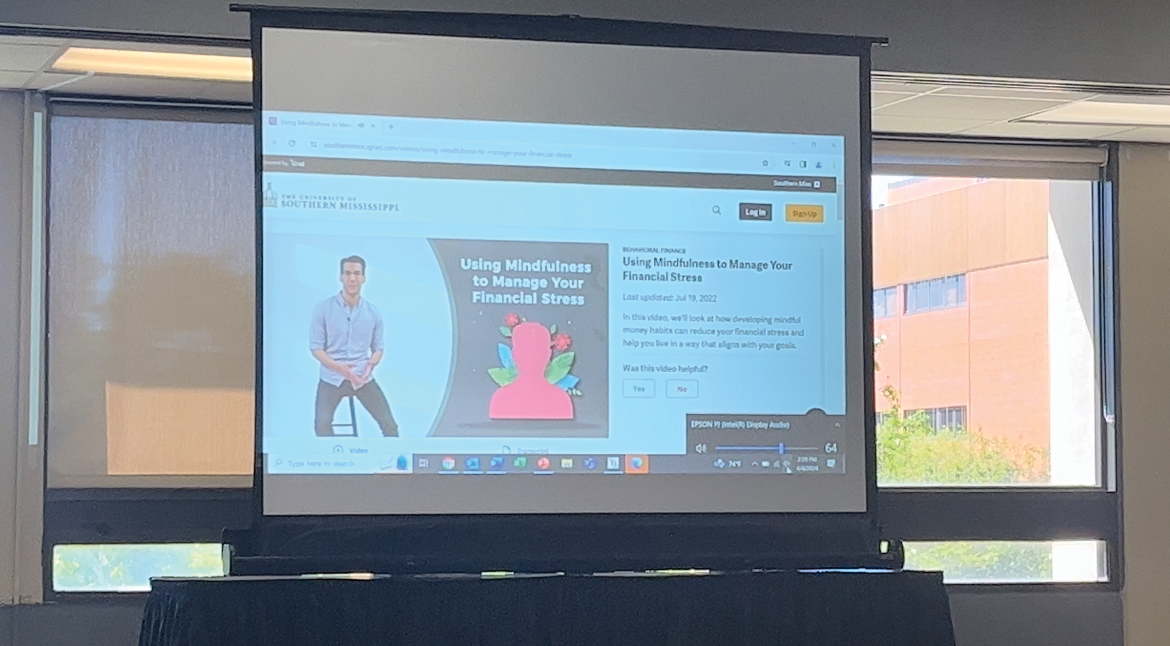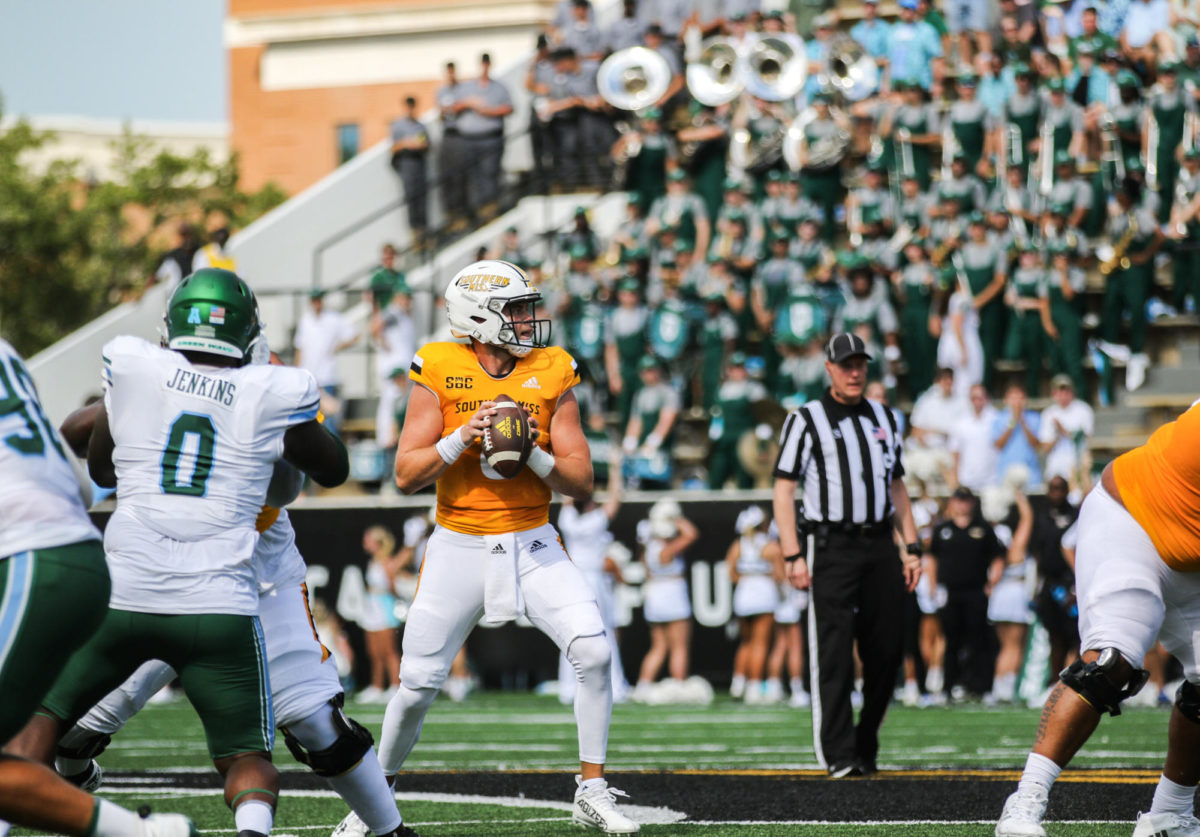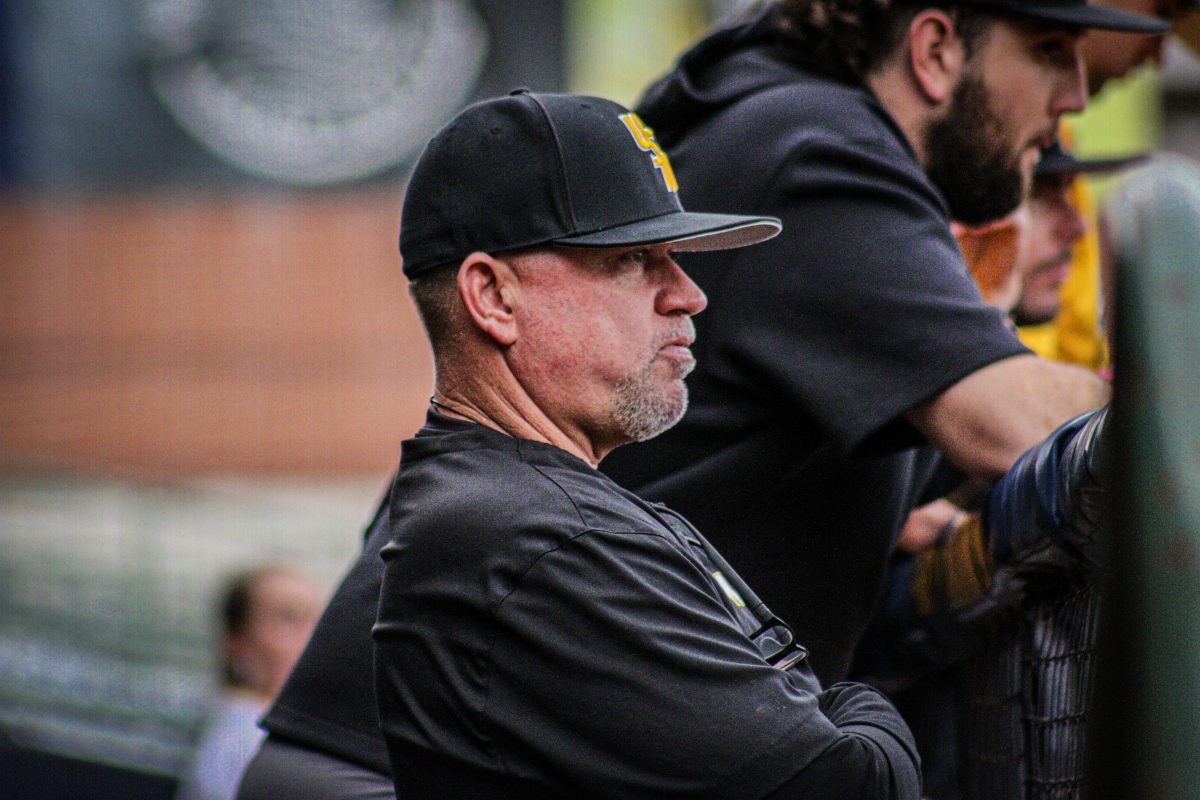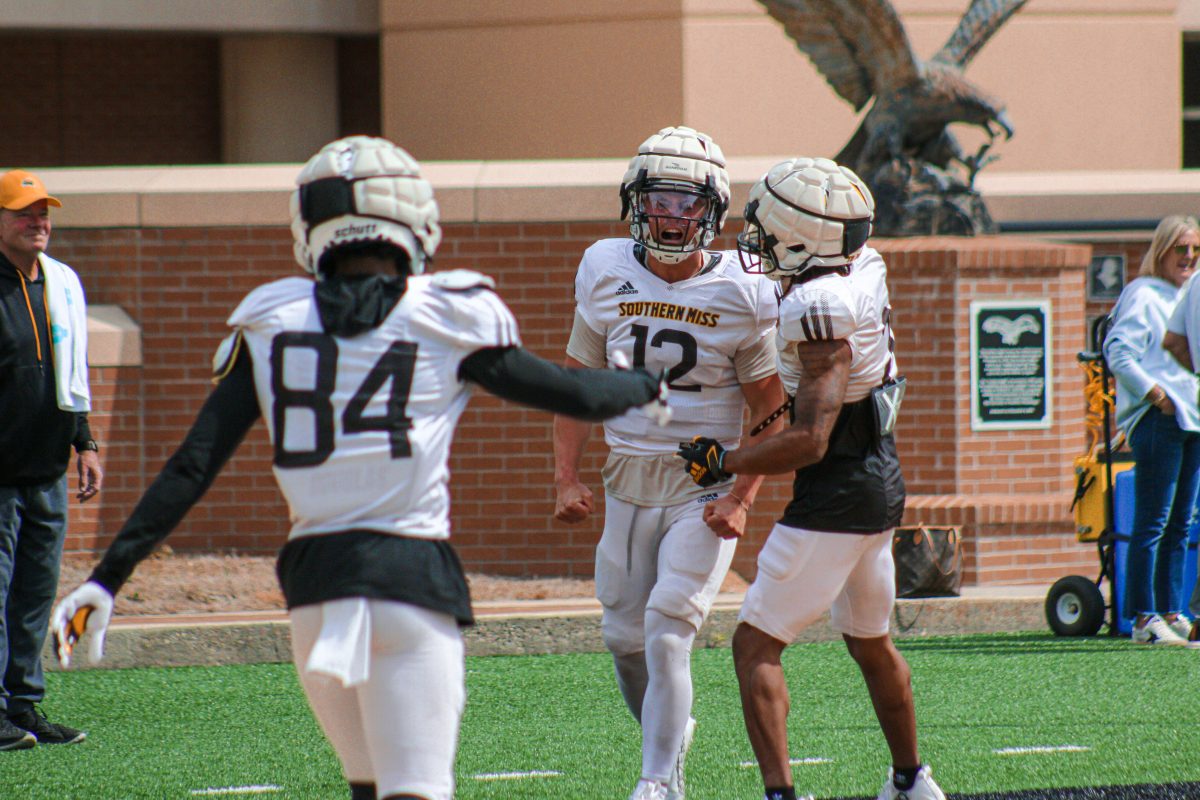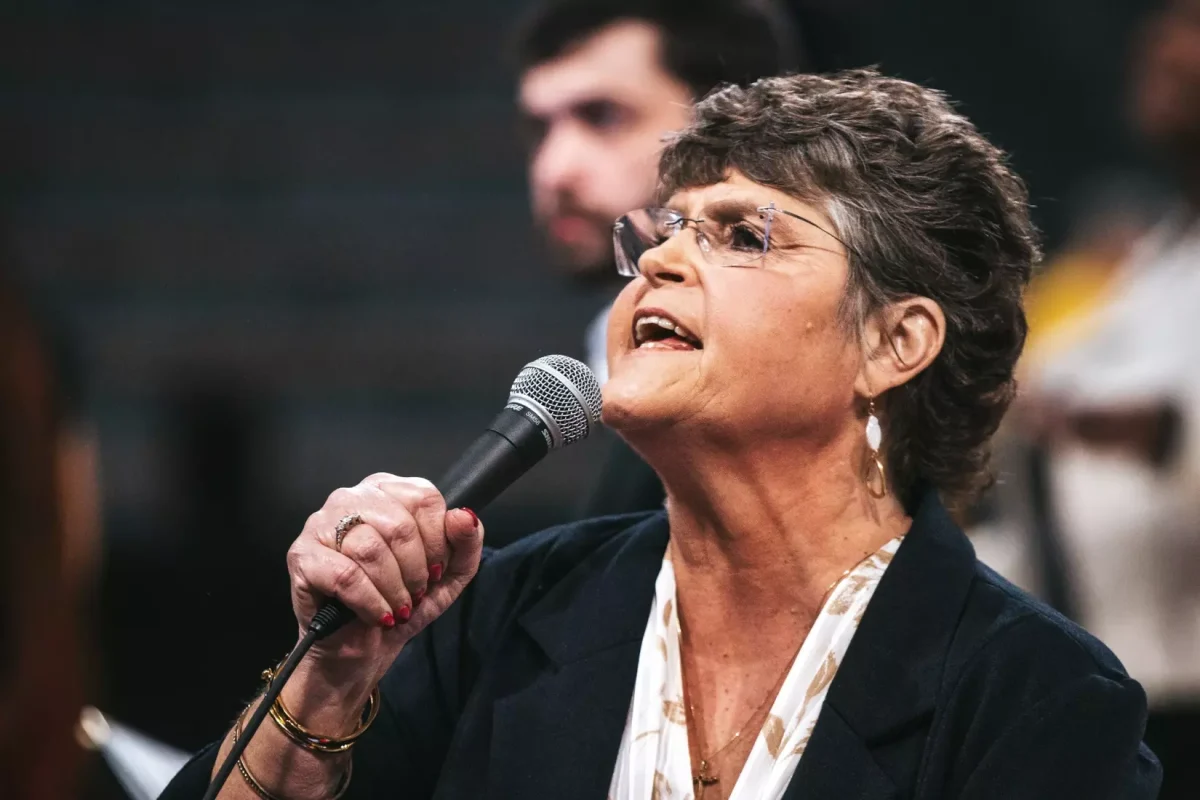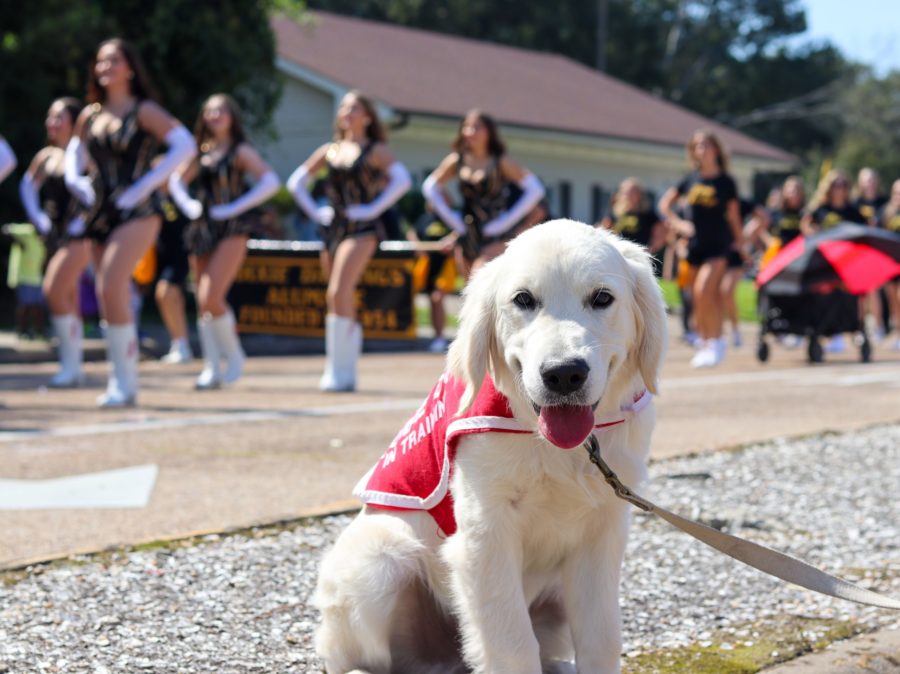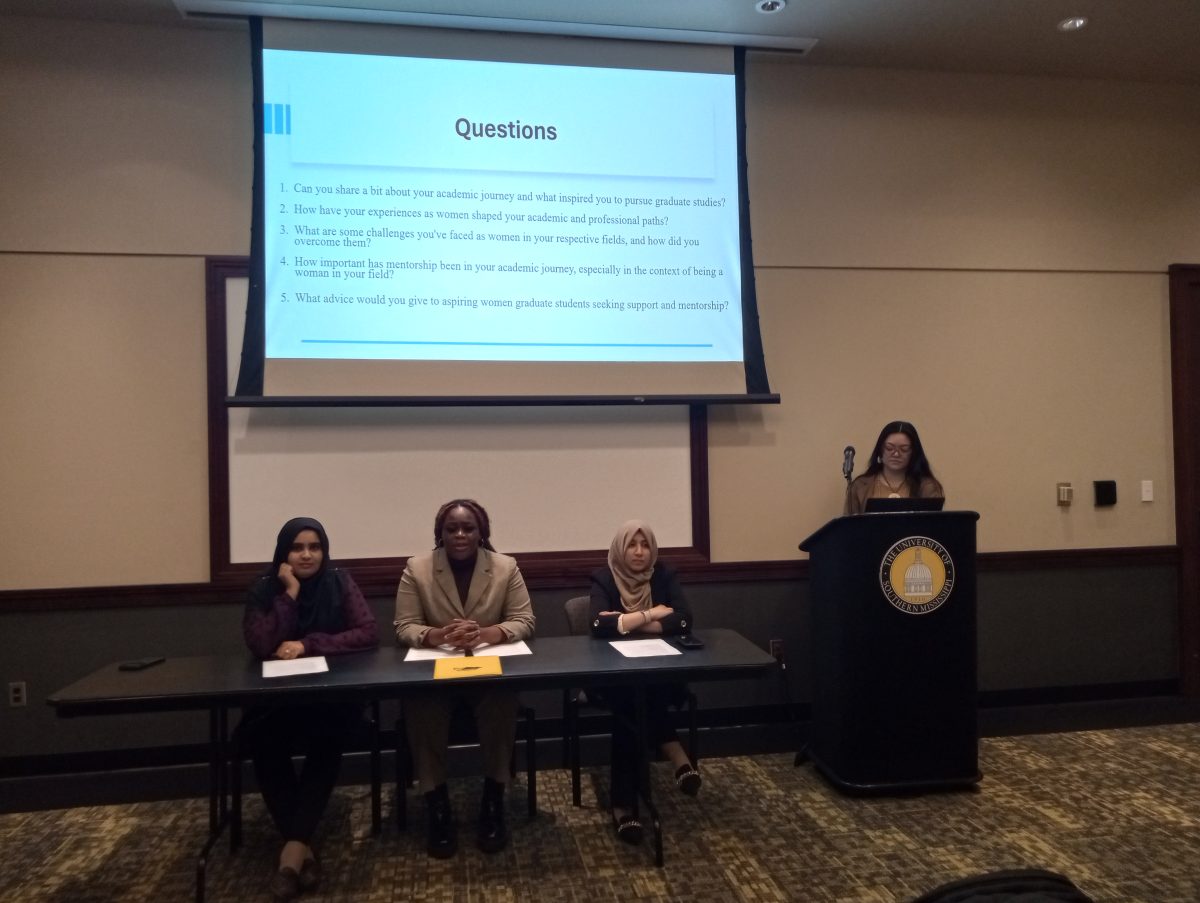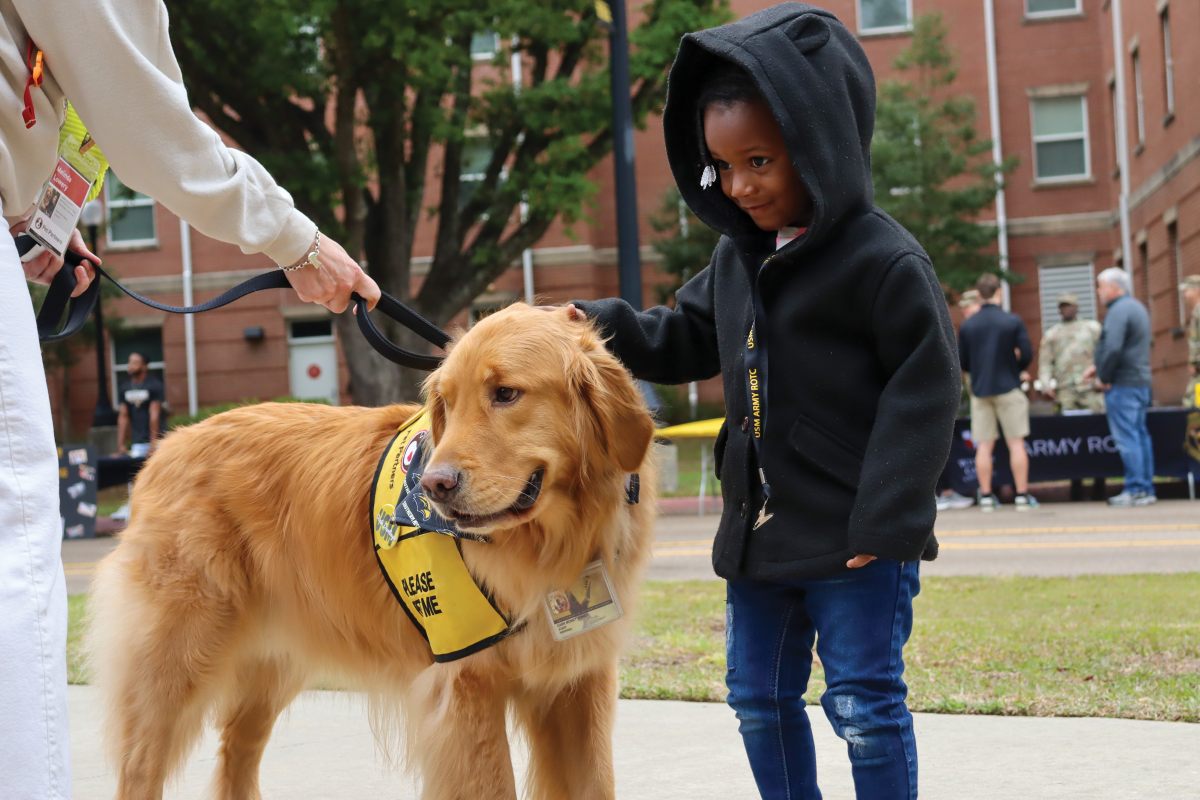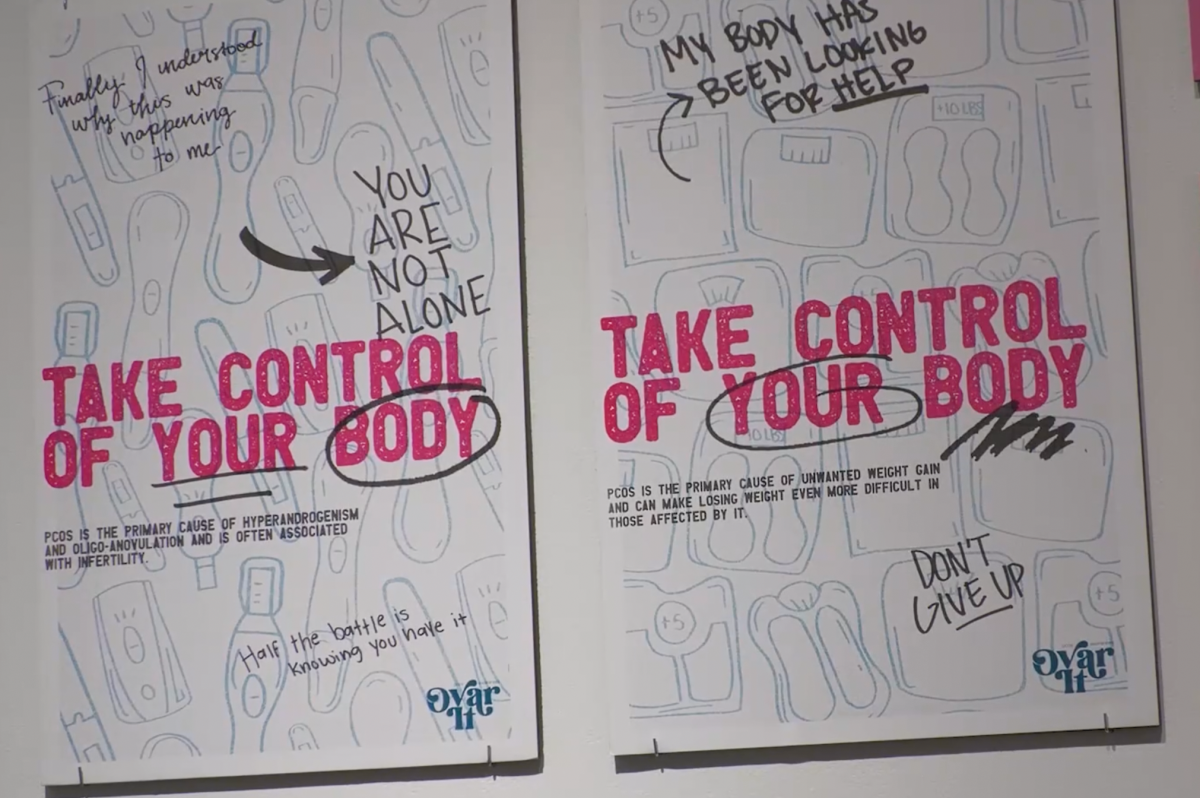We all have that one friend we can rely on. The one who encourages us, who helps us, who we can hug while they say everything will be ok. For some people, that friend just happens to take on a furry, four-legged form.
Students at the University of Southern Mississippi depend on a wide variety of service animals. Ever since she was born, Mississippi native Nicole Gandy has been blind. She used to use a white mobility cane before deciding to get her service dog, Eva.
“If I tell her to find a door, she will find it. If you tell that white stick to find a door, you are going to look like a crazy person,” Gandy said.
Gandy spoke about the importance of raising awareness about service dogs and called for better education on the topic. Everyone sees a service animal as just another dog, but Eva is Gandy’s eyes. She is everything to her.
“Do not call someone’s service animal,” Gandy said. “If someone calls my dog, she could walk me out in the middle of the street without me knowing.”
Though Bayleigh Blackard, the Vice President of Member Development and the Tri Delta Involvement Chairperson, is not blind, she too relies on service animals. Her emotional support dog, Savvy, has helped her through a lot of emotional distress, especially during the COVID-19 pandemic.
Blackard also spoke of the need for service animal awareness on campus. She relies on Savvy every day, and Savvy is with her wherever she goes.
Blackard also wants people to recognize the many differences between service animals and emotional support animals. For example, Savvy can be pet by strangers because she is there for emotional support. But Eva, as a seeing eye dog, cannot, since she is busy keeping Gandy safe.
Not only are there service animals and emotional support animals, but there are also therapy dogs. Melinda Lowery, who is currently training her Golden Retriever Cash to be a therapy dog, explained the difference between the two.
“A therapy dog is different from a service dog and can be used [in] several different ways. [They can help with] physical therapy and they work in assisted living,” Lowery said.
Every Thursday, Cash and Lowery stand outside the Thad Cochran Center so students can pet and talk with them. Cash is a light to those who need him, and I asked what he thought of this. He left no comment.
Even outside these three unique stories, there is a definite need for more awareness about service animals. According to the Office for Disability Accommodations at Southern Miss, “700 students registered with ODA and 3% of those students have an Emotional Support Animal (ESA).” And this number may actually be a lot higher — students that have service animals are not required to register them with ODA or Housing and Residence Life.
These animals also should be recognized for their hard work. They have to go through rigorous training to learn specific talents, such as how to alert a diabetic that their blood sugar is getting low, before being assigned to a person. They also have to be identified as a service animal when in public, a place which adds additional stresses and responsibilities.
When you think back to that friend who has guided you through your darkest days, remember Gandy, who cannot go anywhere without Eva. The next time you are in a dark place, remember Blackard, and her words about emotional support animals. If you ever need to hug someone, remember Cash and Lowery, and just how much one hug can change someone’s life.
We all have unique systems of support. For these three — and for many more — they have a dog, who is so much more than just “man’s best friend”.



